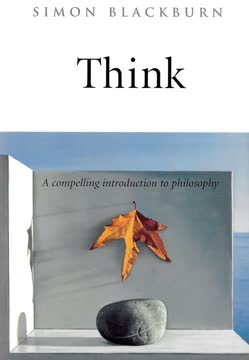重点摘要
1. 马克思的哲学源于对黑格尔和资本主义的批判
马克思抓住了将黑格尔拉回现实的想法,他也开始使用黑格尔的方法来攻击人类当前的物质和经济状况。
黑格尔的根源。 马克思的哲学旅程始于对黑格尔唯心主义的批判。虽然黑格尔认为历史是精神或心灵的进步,但马克思颠倒了这个概念,认为物质条件和经济关系塑造了人类的意识和社会。这种唯物主义方法成为马克思分析资本主义和他社会变革愿景的基础。
对资本主义的批判。 马克思在巴黎早期接触社会主义思想,并观察到英国的工业状况,这使他对资本主义产生了批判性的看法。他认为资本主义虽然具有生产力,但也造成了深刻的不平等和异化。这种批判成为他毕生工作的核心,最终在他的巨著《资本论》中达到了顶峰。
2. 唯物史观:经济力量塑造社会
物质生活的生产方式决定了社会、政治和精神生活过程。不是人们的意识决定他们的存在,相反,是他们的社会存在决定了他们的意识。
经济基础和上层建筑。 马克思认为,一个社会的经济系统(“基础”)决定了其社会、政治和意识形态结构(“上层建筑”)。这意味着法律、政治、文化,甚至宗教都受到潜在的经济条件和生产关系的影响。
历史唯物主义。 根据马克思的观点,历史通过不同的生产方式(如封建主义、资本主义、社会主义)进步,这些生产方式由生产力(技术、劳动)和生产关系(财产所有权、阶级结构)之间的矛盾驱动。这些矛盾导致阶级冲突,最终导致社会革命,进而改变社会。
- 生产方式:
- 原始共产主义
- 奴隶社会
- 封建主义
- 资本主义
- 社会主义/共产主义
3. 异化:资本主义使工人疏离他们的劳动和人性
工人将他的生命投入到物品中,这意味着它不再属于他,而是属于物品……工人在其产品中的外化不仅意味着他的劳动成为一个物体,一个外在存在,而且它存在于他之外,独立且异化,成为一个自足的力量与他对立,他赋予物品的生命反过来对他进行敌对和异化。
四种异化。 马克思识别出资本主义使工人异化的四种方式:
- 与劳动产品的异化
- 与生产活动的异化
- 与类本质(人性)的异化
- 与其他工人的异化
非人化效应。 马克思认为,在资本主义下,工作成为一种外在的、被迫的活动,而不是人类创造力的充实表达。工人被简化为商品,他们的劳动在市场上被买卖。这种异化不仅限于工作场所,还影响到人类生活和关系的各个方面。
4. 剩余价值:资本主义核心的剥削
工人只获得他的劳动的交换价值,而不是使用价值,这意味着为了赚取足够的生活费用,他必须工作一整天——比如说十二小时——而他的劳动在六小时内就能生产出必要的食物、衣物、住所等的使用价值。
劳动价值论。 马克思基于古典经济学提出商品的价值由生产它所需的社会必要劳动时间决定。然而,他进一步揭示了他所认为的资本主义中的根本剥削。
剩余价值的提取。 马克思认为,资本家只支付工人的劳动力(工作能力),但从工人创造的全部价值中获利。工人所获得的报酬与他们创造的价值之间的差额就是剩余价值,这被资本家作为利润占有。这种剥削是资本积累和阶级不平等的根源。
- 例子:
- 工人的日工资:$100
- 一天创造的价值:$200
- 提取的剩余价值:$100
5. 阶级斗争:历史变革的驱动力
迄今为止一切社会的历史都是阶级斗争的历史。
二元阶级结构。 马克思认为社会基本上分为两个主要阶级:
- 资产阶级:生产资料的所有者
- 无产阶级:出卖劳动力的工人
历史辩证法。 根据马克思的观点,阶级斗争是历史变革的引擎。每一种生产方式都会产生自身的阶级对立,最终导致革命和新社会秩序的建立。
无产阶级革命。 马克思预测,资本主义的内在矛盾将导致其崩溃。无产阶级作为“除了锁链之外一无所有”的普遍阶级,将推翻资产阶级,建立社会主义社会,最终实现共产主义。
6. 共产主义:马克思对无阶级、无国家社会的愿景
共产主义……是人与自然之间、人与人之间对立的真正解决,是存在与本质、物化与自我肯定、自由与必然、个人与类之间斗争的真正解决。
废除私有制。 马克思的共产主义愿景的核心是生产资料的集体所有,消除阶级剥削的基础。
人性转变。 马克思相信,共产主义不仅会改变经济关系,还会改变人类意识。在没有资本主义的异化和竞争的情况下,人们将能够充分发挥其作为社会存在的潜力。
无国家社会。 在共产主义的最终阶段,马克思设想国家的“消亡”,因为阶级对立消失,社会可以按照“各尽所能,按需分配”的原则组织起来。
7. 马克思的持久影响:不平等、全球化和环境危机
对其产品的不断扩大的市场需求驱使资产阶级遍布全球。它必须到处安家,到处定居,到处建立联系。
持续的不平等。 尽管马克思对贫困化和革命的预测尚未实现,但他对资本主义集中财富倾向的洞察仍然具有现实意义。像托马斯·皮凯蒂这样的经济学家的工作重新引起了人们对日益加剧的不平等的关注。
全球化。 马克思对资本主义扩张本质的分析预见了现代全球化的许多方面,包括世界市场的形成和生产的不断革命化。
环境危机。 一些当代思想家借鉴马克思对资本主义无限增长驱动的批判来应对环境挑战,特别是气候变化。“生态社会主义者”认为,克服资本主义是实现生态可持续性的必要条件。
- 持续相关的领域:
- 对经济不平等的批判
- 对经济危机的分析
- 对全球化动态的洞察
- 对资本主义的环境批判的基础
最后更新日期:
FAQ
What's "Marx: A Very Short Introduction" about?
- Overview: The book provides a concise introduction to the life, ideas, and influence of Karl Marx, written by philosopher Peter Singer.
- Purpose: It aims to make Marx's complex theories accessible to general readers, offering a clear explanation of his central ideas.
- Content: The book covers Marx's biography, his philosophical development, his economic theories, and the impact of his ideas on history and contemporary thought.
- Series Context: It is part of the "Very Short Introductions" series, which offers brief overviews of a wide range of subjects.
Why should I read "Marx: A Very Short Introduction"?
- Understanding Marx: The book provides a foundational understanding of Marx's ideas, which have significantly influenced political, economic, and social thought.
- Relevance: Marx's theories continue to be relevant in discussions about capitalism, socialism, and economic inequality.
- Clarity: Peter Singer presents Marx's complex ideas in a clear and accessible manner, making it suitable for readers new to Marxist theory.
- Contextual Insight: The book places Marx's ideas within the historical and philosophical context, enhancing comprehension of his impact.
What are the key takeaways of "Marx: A Very Short Introduction"?
- Materialist Conception of History: Marx's theory that economic forces drive historical change and shape society's structure.
- Alienation: The concept that under capitalism, workers are alienated from the products of their labor, leading to a loss of freedom and self-realization.
- Surplus Value: Marx's economic theory that capitalists profit by extracting surplus value from workers' labor.
- Revolution and Communism: Marx's belief in the eventual overthrow of capitalism by the proletariat, leading to a classless, communist society.
What is the materialist conception of history according to Marx?
- Economic Base: Marx argues that the economic structure of society (the base) determines its legal, political, and ideological superstructure.
- Productive Forces: The development of productive forces (technology, labor) drives historical change and societal evolution.
- Class Struggle: History is characterized by class struggles, which arise from conflicts between different economic classes.
- Inevitable Change: Marx believed that these economic forces would inevitably lead to the collapse of capitalism and the rise of communism.
How does Marx define alienation in "Marx: A Very Short Introduction"?
- Worker's Alienation: Workers are alienated from the products of their labor, which are owned and controlled by capitalists.
- Loss of Self: This alienation leads to a loss of self and a disconnection from one's own humanity and creativity.
- Social Relations: Alienation extends to social relations, where individuals see each other as competitors rather than collaborators.
- Resolution: Marx believed that communism would resolve alienation by abolishing private property and enabling collective ownership.
What is surplus value in Marx's economic theory?
- Definition: Surplus value is the difference between the value produced by labor and the wages paid to the laborer.
- Capitalist Profit: Capitalists extract surplus value from workers, which is the source of their profit.
- Labor Exploitation: This process is seen as exploitation, as workers do not receive the full value of their labor.
- Economic Critique: Surplus value is central to Marx's critique of capitalism, highlighting inherent inequalities in the system.
How does Peter Singer address Marx's relevance today?
- Contemporary Issues: Singer discusses how Marx's ideas remain relevant in addressing modern issues like economic inequality and globalization.
- Critique of Capitalism: Marx's critique of capitalism's tendency to concentrate wealth and power is still pertinent.
- Environmental Concerns: The book touches on how Marxist ideas can inform discussions on environmental sustainability and capitalism's impact on nature.
- Philosophical Insights: Marx's philosophical insights into human nature and freedom continue to influence contemporary thought.
What are the best quotes from "Marx: A Very Short Introduction" and what do they mean?
- "The weapon of criticism cannot, of course, supplant the criticism of weapons; material force must be overthrown by material force." This quote highlights Marx's belief in the necessity of revolutionary action to achieve societal change.
- "The philosophers have only interpreted the world in various ways; the point is, to change it." Engraved on Marx's tombstone, this quote emphasizes the importance of practical action over mere theoretical interpretation.
- "Communism is the riddle of history solved." This reflects Marx's view that communism would resolve the contradictions and conflicts inherent in capitalist societies.
How does Peter Singer explain Marx's concept of freedom?
- Beyond Liberal Freedom: Marx's concept of freedom goes beyond the liberal idea of non-interference, focusing on collective control over social and economic conditions.
- True Freedom: True freedom, for Marx, involves the ability to shape one's own life and society, free from economic constraints.
- Collective Action: Marx believed that collective action and planning are necessary to achieve true freedom for all.
- Critique of Capitalism: Capitalism, according to Marx, limits freedom by subjecting individuals to the impersonal forces of the market.
What role does the proletariat play in Marx's theory?
- Revolutionary Class: The proletariat, or working class, is seen as the revolutionary class that will overthrow capitalism.
- Universal Sufferings: Marx believed the proletariat's universal sufferings would drive them to seek a complete transformation of society.
- Agent of Change: The proletariat is the agent of change, realizing the potential for human freedom and ending alienation.
- Philosophical Weapon: Marx saw the proletariat as the material force that would realize the philosophical ideals of freedom and equality.
How does "Marx: A Very Short Introduction" address Marx's predictions about capitalism?
- Predictions: Marx predicted that capitalism would lead to increasing inequality, falling rates of profit, and eventual collapse.
- Critique of Predictions: Singer discusses how many of Marx's predictions have not come to pass, particularly in industrialized nations.
- Relevance of Critique: Despite inaccuracies, Marx's critique of capitalism's tendencies remains relevant in discussions of economic inequality.
- Philosophical Legacy: Marx's philosophical insights continue to influence debates on freedom, human nature, and societal change.
How does Peter Singer view Marx's impact on modern thought?
- Influence on Disciplines: Marx's ideas have profoundly influenced history, sociology, philosophy, and the arts.
- Enduring Legacy: Marx's critique of capitalism and his vision of a classless society continue to inspire political movements and academic discourse.
- Complex Legacy: Singer acknowledges the complexity of Marx's legacy, including both the positive and negative outcomes of Marxist-inspired regimes.
- Philosophical Contributions: Marx's contributions to understanding human freedom and societal structures remain significant in contemporary thought.
评论
《马克思:一个非常简短的介绍》收到了褒贬不一的评价。读者们欣赏其对马克思思想和生平的简明概述,并称赞辛格的清晰写作。然而,有些人批评辛格对马克思经济预测的轻蔑态度以及他对马克思主义的解释。这本书被认为是理解马克思哲学的一个良好起点,但读者指出辛格的分析可能存在偏见。有些人认为它有助于掌握关键的马克思主义概念,而另一些人则认为它缺乏深度,并且曲解了马克思的思想。
Very Short Introductions Series Series

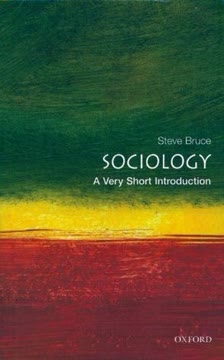
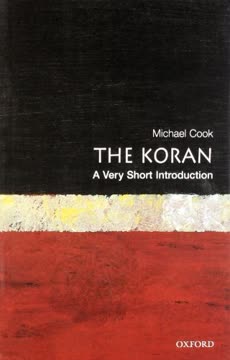





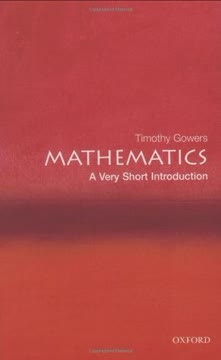
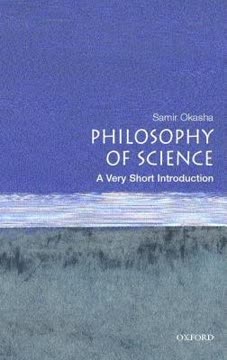
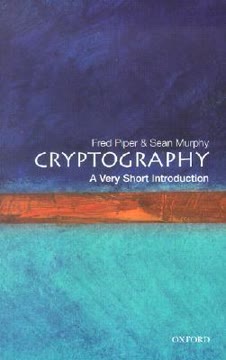
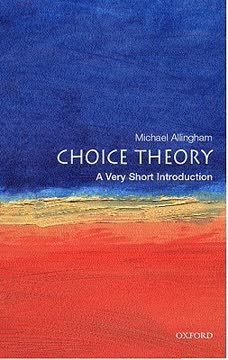
Similar Books
